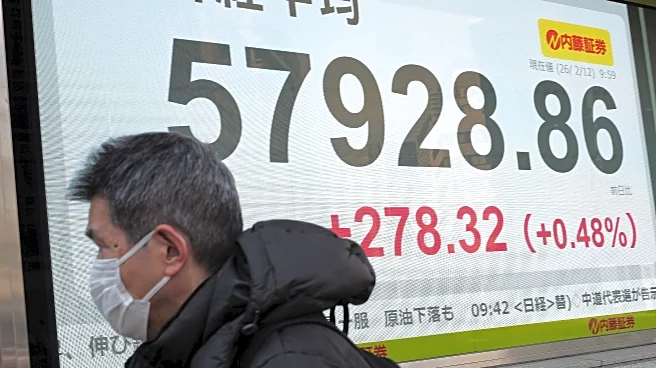What's Happening?
A woman named Emily shared her experience of being misled by a car dealership, highlighting a common issue in the auto industry known as bait-and-switch tactics. Emily, who was 39 weeks pregnant, attempted to purchase a specific car from a dealership two hours away. Despite being told the car was sold, she received multiple calls from salesmen assuring her the car was available. Upon arrival, she was informed the car was sold, but a similar model was available for $25,000 more. This incident underscores deceptive practices where dealerships advertise vehicles to attract buyers, only to pressure them into purchasing more expensive options.
Why It's Important?
The incident highlights ongoing concerns about consumer protection in the auto industry. Bait-and-switch tactics can erode consumer trust and lead to financial strain for buyers who may feel pressured into purchasing more expensive vehicles. The Federal Trade Commission's CARS Rule, effective since July 2024, aims to curb such practices by enforcing transparency in pricing and vehicle availability. However, Emily's experience suggests that these regulations may not be fully effective, indicating a need for stricter enforcement and consumer awareness to prevent exploitation.
What's Next?
Consumers are advised to remain vigilant and informed when purchasing vehicles. They should verify the availability of advertised cars, obtain written offers, and understand the total cost, including fees. The auto industry may face increased scrutiny and potential regulatory adjustments if deceptive practices persist. Dealerships could experience reputational damage and loss of business if consumer trust continues to decline. Advocacy for stronger consumer protection laws may gain momentum, prompting legislative action to ensure fair practices.
Beyond the Headlines
The ethical implications of bait-and-switch tactics raise questions about the integrity of sales practices in the auto industry. Such tactics not only affect individual consumers but also contribute to broader societal distrust in commercial transactions. Long-term shifts may include increased demand for transparency and accountability, potentially leading to industry-wide changes in sales strategies and consumer engagement.












